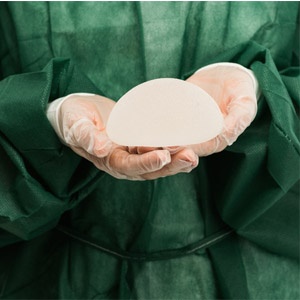
Women with breast implants appear to have a higher false-negative mammography rate than the general population, according to data presented this week at the annual meeting of the American Society of Breast Surgeons in Washington, DC.
These patients also present more often with palpable and node-positive disease than women without implants, the study shows. Yet there was no difference in cancer recurrence or 10-year survival.
"The take-home message is that if a woman has implants and she's at elevated risk for breast cancer, MRI is suggested in addition to mammography," said Dr Sheldon Feldman, chief of breast surgery at Columbia University Medical Centre in New York and Chair of the society's publication committee.
"I don't think the data are strong enough to make any statements about the prognosis," added Dr Feldman, who was not involved in the new work.
The findings are based on retrospective data on 195 breast cancer patients with breast augmentation and 4,810 without.
The study
Dr Jessica Rayhanabad of the University of Southern California, Los Angeles, and colleagues examined palpability, tumour size, nuclear grade, breast cancer-specific survival and other factors in these patients.
Prebiopsy mammography yielded a false-negative rate of 36% among the augmented patients, compared to only 15% in the general population, Dr Rayhanabad's team found.
One reason for the higher rate might be related to older augmentation methods.
"People used to put the implant above the pectoral muscle," said Dr Rayhanabad. "The actual mammogram was difficult to read. Now that they're putting the implants behind the pec, it's not as challenging to read the mammogram."
But, she added, even new implants still present some difficulty during screening.
Findings
In the study, 68% of the augmented patients had palpable cancers, compared to 52% of the patients in the control group (p=0.001). In addition, 46% of the augmented group had node-positive cancer vs. 33% of the control group (p=0.005).
It's possible that the implant pushes breast tissue from behind up against the skin, making cancers easier to palpate, Dr Rayhanabad said. People who seek augmentation may also have less breast tissue, which could make it easier to detect the disease.
She added that she was surprised to see that breast implants had no effect on cancer recurrence, breast-cancer-specific survival or overall survival.
"I did expect to see a difference in the survival rate if there were more patients with node-positive diseases," Dr Rayhanabad said, adding that a larger study might be needed to show an effect.
(Reuters Health, Rob Goodier, May 2011)




 Publications
Publications
 Partners
Partners















